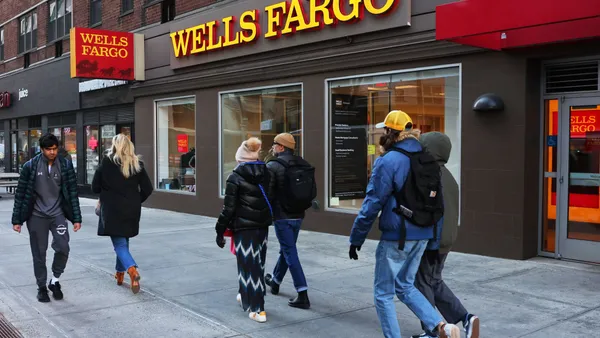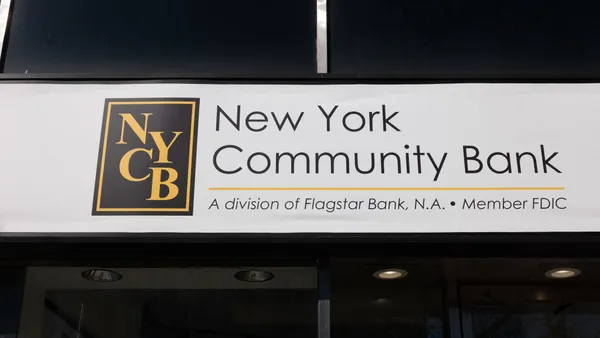Dive Brief:
-
A bipartisan group of more than 100 House lawmakers, led by Rep. Ed Perlmutter, D-CO, reintroduced a cannabis banking bill Thursday that would provide protections to financial institutions that offer services to marijuana-related businesses.
-
The landmark SAFE Banking Act sailed through the Democrat-controlled House 321-103 in 2019, only to stall in the then-Republican-controlled Senate after the chamber's former Banking Committee chairman, Mike Crapo, R-ID, refused to hold a vote on the bill. House Democrats tried to pass the legislation by folding it into two coronavirus relief measures proposed by the House, but the language was not included in the bill President Joe Biden signed this month.
-
With Democrats now in control of the House and Senate, 2021 could be the year that SAFE Banking, which is supported by cannabis advocates and bank and credit union trade groups, passes.
Dive Insight:
The banking industry has largely been reluctant to service the cannabis sector because of pot's classification as a Schedule 1 drug, forcing many marijuana- related businesses to deal primarily in cash. Cannabis reform advocates say the cash-only nature of the industry making the businesses targets for theft.
"The genie is out of the bottle and has been for many years. Thousands of employees and businesses across this country have been forced to deal in piles of cash for far too long, and it is the responsibility of Congress to step up and take action to align federal and state laws for the safety of our constituents and communities," Perlmutter said in a statement. "The public safety need is urgent, and a public health and economic need has also emerged with the pandemic further exacerbating the cash-only problem for the industry."
Many observers are hopeful the bill will get a hearing under new Senate Banking Chairman Sherrod Brown, D-OH. But he has expressed a desire that the legislation be accompanied by broader reform.
"I am willing to look at moving on the SAFE Act, but with it needs to come sentencing reform," Brown told Cleveland.com last month. "I don’t think we move on legalization the way that Colorado and some other states want us to, unless we really look more seriously at who’s in prison for how long for those kinds of offenses and we don’t do one without the other."
Perlmutter said he discussed holding a Senate hearing on cannabis banking with Brown last session.
"He knows that this is a high priority for me; he and I talked about it," Perlmutter told the Denver Post last month. "I haven't talked to him about it yet in this session but I certainly will."
A Senate version of the bill is expected to be introduced next week, according to Marijuana Moment.
Meanwhile, not all industry stakeholders are convinced the SAFE Banking Act would have a sweeping effect on how the risk-averse banking industry would respond to serving cannabis businesses.
"Even with SAFE Banking passing, I don’t think you’re going to see financial institutions jump into this industry," said Partner Colorado Credit Union CEO Sundie Seefried, who crafted and launched the Arvada, Colorado-based credit union’s cannabis banking program in 2014.
Seefried, who is leaving her post at the credit union in July to head its cannabis banking-focused spinoff, said she thinks the Bank Secrecy Act will continue to deter many institutions from extending their services to the industry.
"The SAFE Banking Act takes the legal risk away, so they can't prosecute someone like myself, my board, or any of my officers just for banking cannabis. But it does not take the Bank Secrecy Act risk away, which comes out of [the Financial Crimes Enforcement Network]," she said. "That's where those tens of millions of dollars, or even hundreds of millions of dollars and enforcement actions against financial institutions are levied. ... There is a big roadblock to people wanting to do anything that requires a lot of Bank Secrecy Act compliance."












